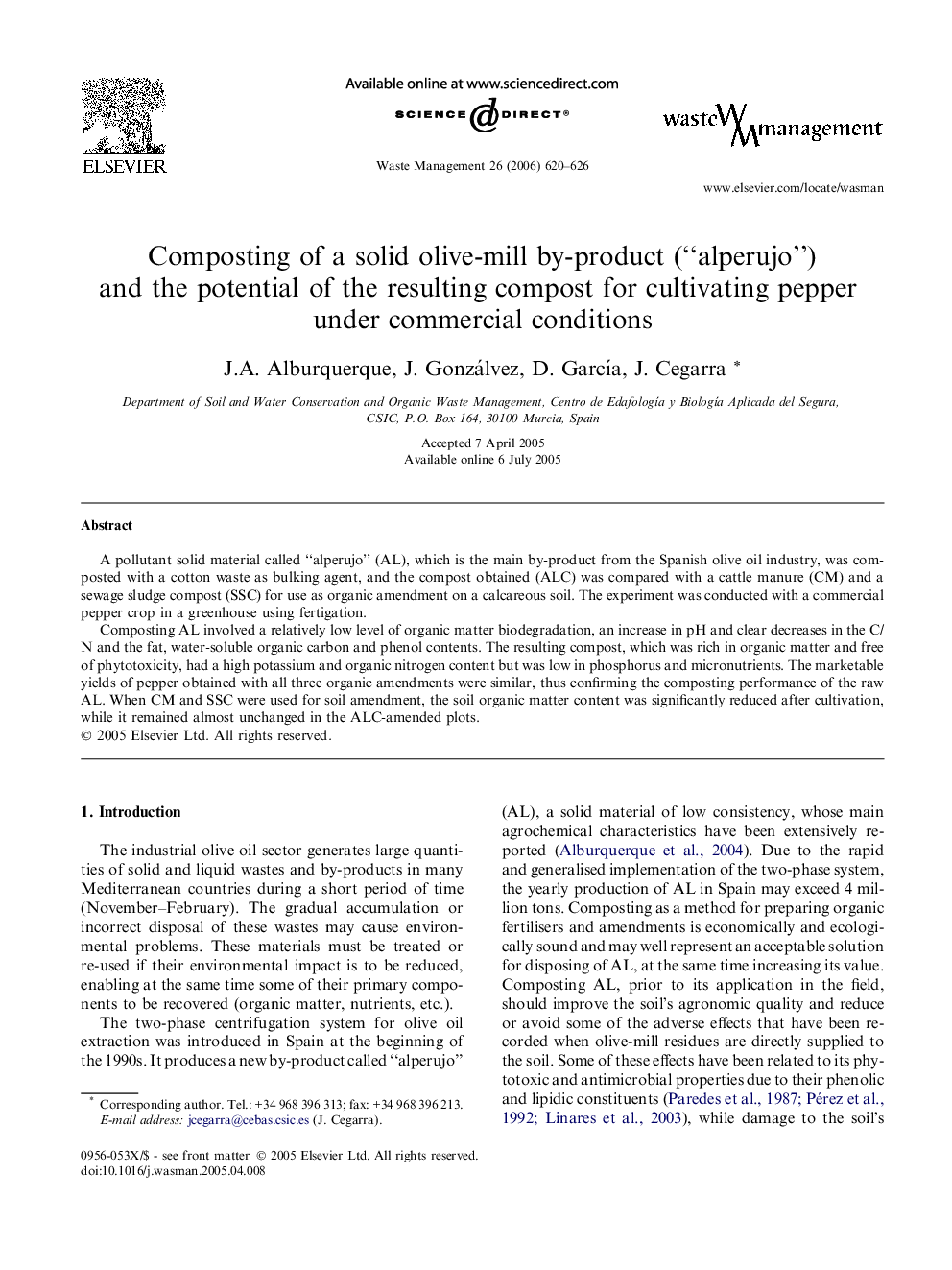| Article ID | Journal | Published Year | Pages | File Type |
|---|---|---|---|---|
| 4473850 | Waste Management | 2006 | 7 Pages |
A pollutant solid material called “alperujo” (AL), which is the main by-product from the Spanish olive oil industry, was composted with a cotton waste as bulking agent, and the compost obtained (ALC) was compared with a cattle manure (CM) and a sewage sludge compost (SSC) for use as organic amendment on a calcareous soil. The experiment was conducted with a commercial pepper crop in a greenhouse using fertigation.Composting AL involved a relatively low level of organic matter biodegradation, an increase in pH and clear decreases in the C/N and the fat, water-soluble organic carbon and phenol contents. The resulting compost, which was rich in organic matter and free of phytotoxicity, had a high potassium and organic nitrogen content but was low in phosphorus and micronutrients. The marketable yields of pepper obtained with all three organic amendments were similar, thus confirming the composting performance of the raw AL. When CM and SSC were used for soil amendment, the soil organic matter content was significantly reduced after cultivation, while it remained almost unchanged in the ALC-amended plots.
